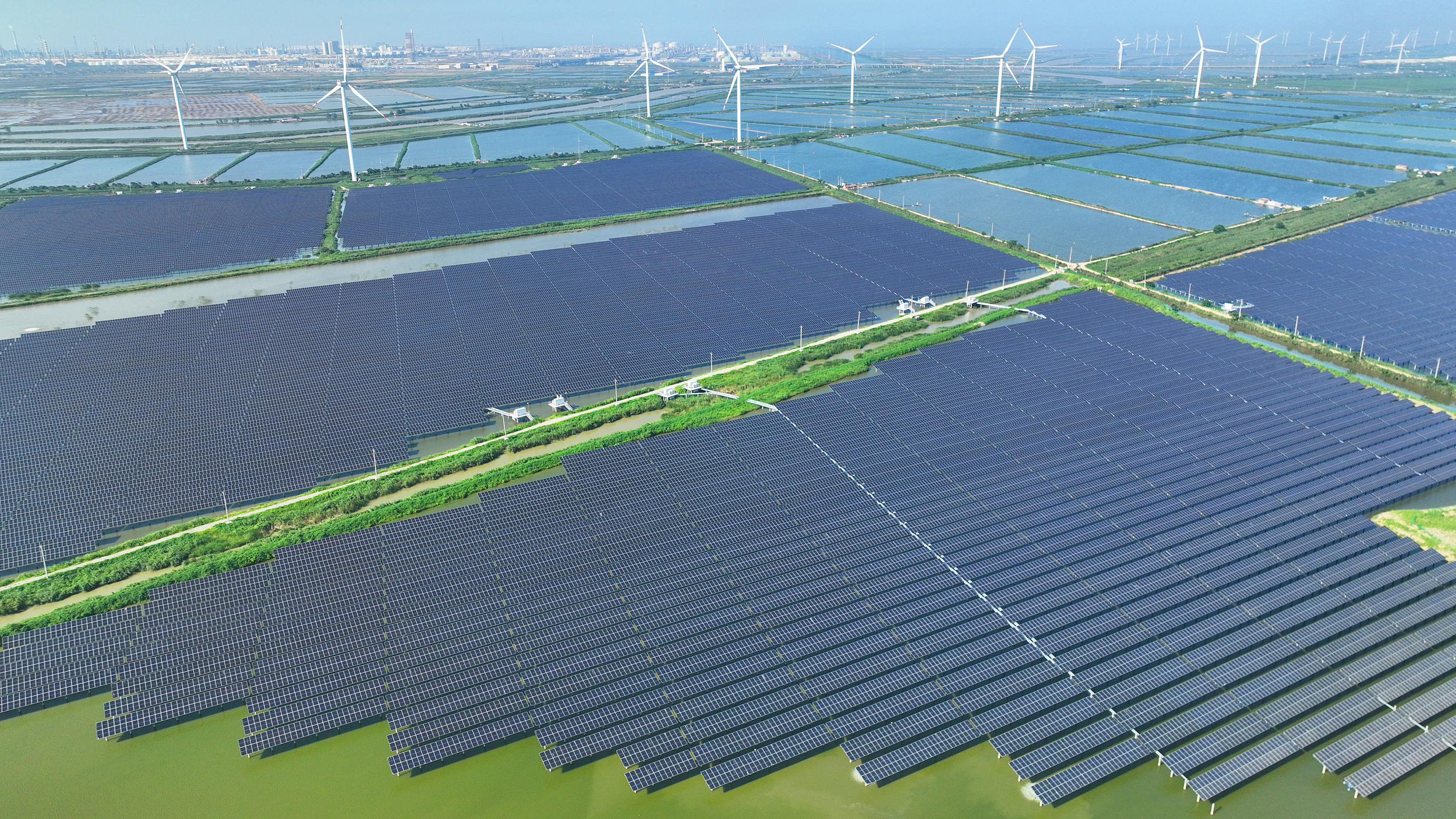
A broad array of solar panels erected on a lake in Lianyungang city, Jiangsu province. (PHOTO: VCG)
By?CHEN Chunyou
China will expand its renewable energy certificate program to all types of renewable energies, according to a notice released by the National Development and Reform Commission, the Ministry of Finance and the National Energy Administration (NEA).
Previously, the program covered only onshore wind and photovoltaic power. Now it extends to hydro, biomass, geothermal and marine energy to meet the increasing demand for green power.
The Green Electricity Certificate (GEC) was introduced by the NEA in 2017 as a pilot program for enterprises to buy renewable energy and develop a green electricity market-based mechanism nationwide.
According to the authorities, one GEC equals 1,000 kWh of renewable energy and can be traded only once. The certificate means that the electricity being used is from renewable sources.
Export-oriented enterprises, state-owned enterprises, multinational companies and their industrial chain enterprises, and enterprises with extensive energy consumption are being encouraged to increase their proportion of green electricity consumption.
The green power can be traded at three platforms — the China GEC trading platform, and two newly authorized power exchange centers in Beijing and Guangzhou. Buyers and providers can engage in trading activities via these platforms through bilateral agreements, listed transactions and auctions.
By March 2023, over 72 million GECs had been issued across China. Wang Dapeng, deputy director of the New Energy and Renewable Energy Department at NEA, said, "The GEC will increase green power supply, boost more new energy transactions and activate the vitality of the green power market."
The official notice announcing the GEC's extension also emphasizes the need to integrate the GEC system with both the national carbon emission rights trading mechanism and the voluntary greenhouse gas emission reduction trading mechanism, which would lay the foundation for incorporating the GEC system into the carbon market's accounting system.
The trio will conduct a series of experiments in fields such as life science, fluid physics, combustion science and materials science. Notably, this is the first time that fruit flies have been taken on a Chinese space mission as experimental subjects. What made scientists choose fruit flies? What experiment will they undergo?
